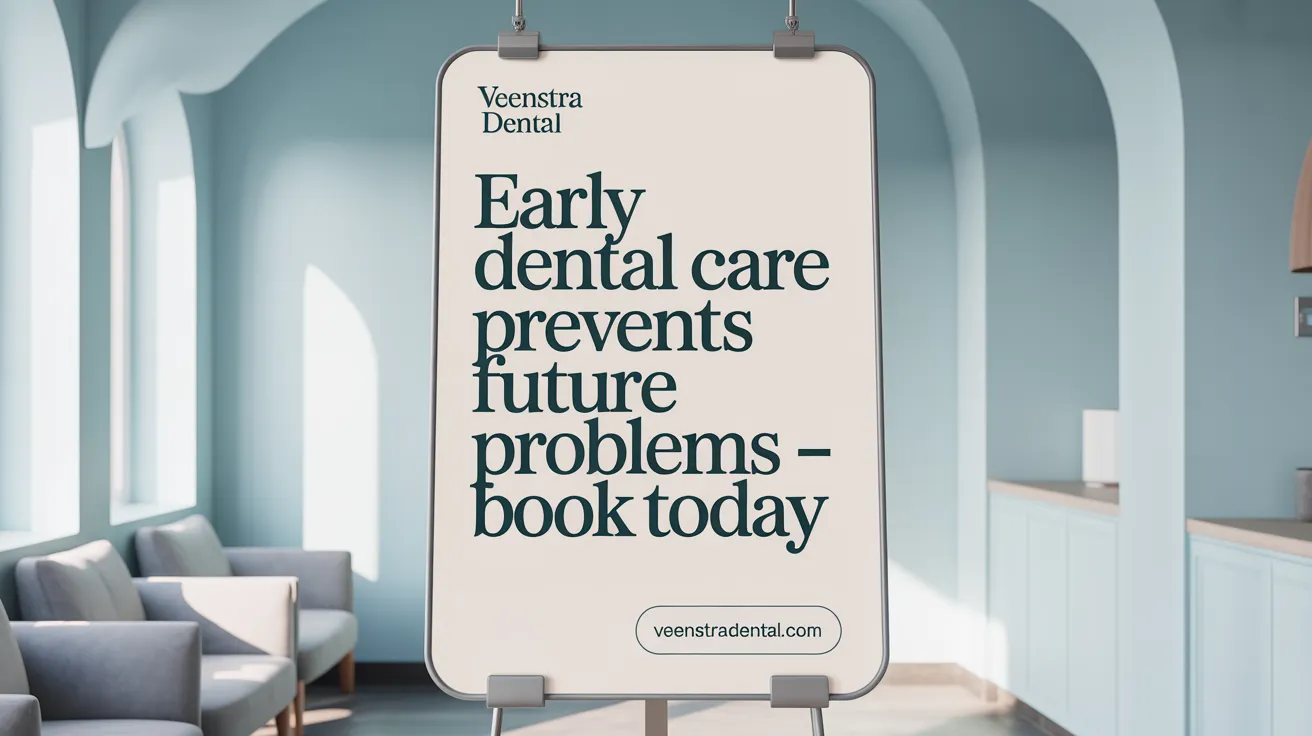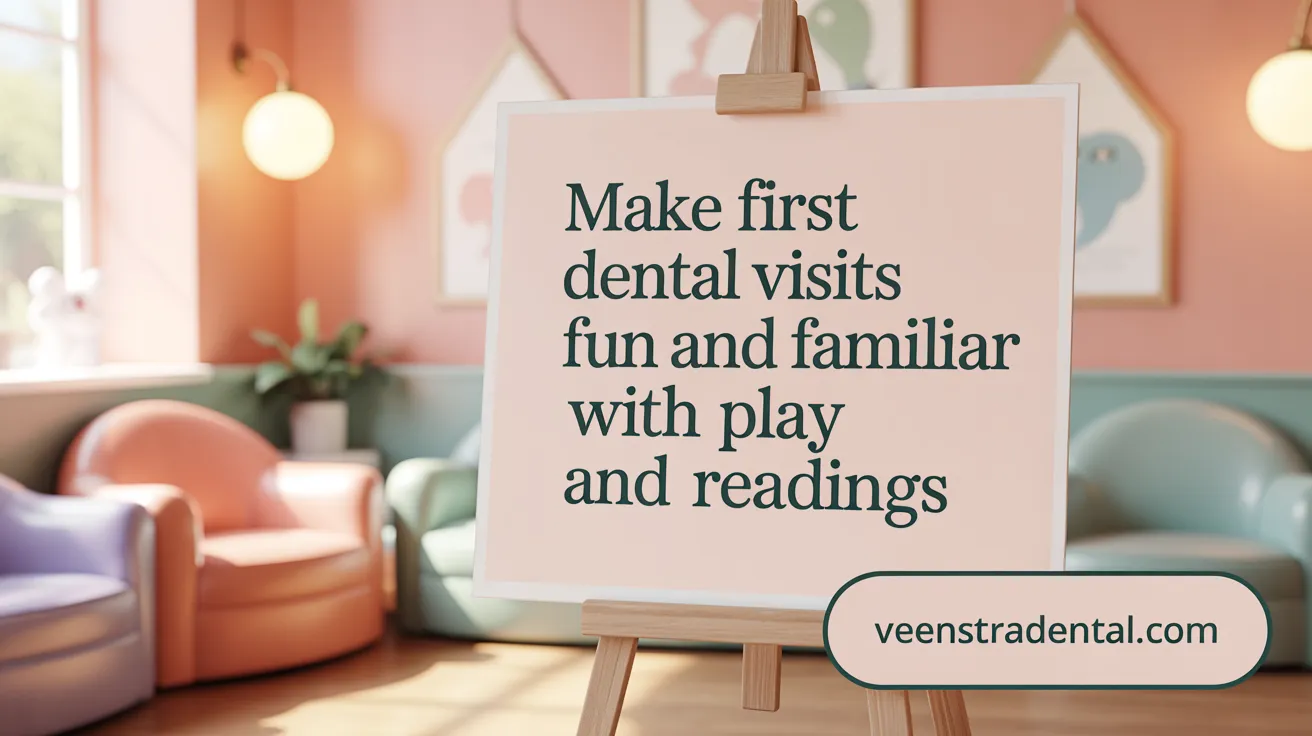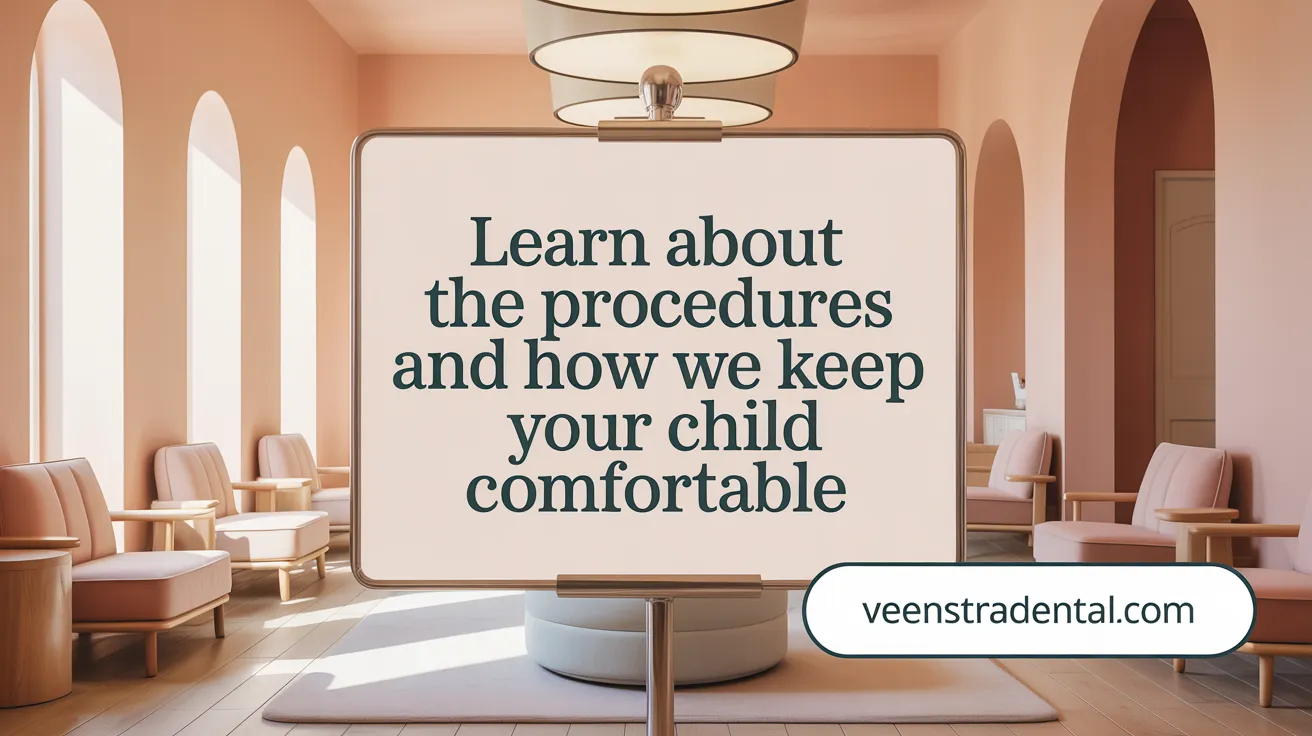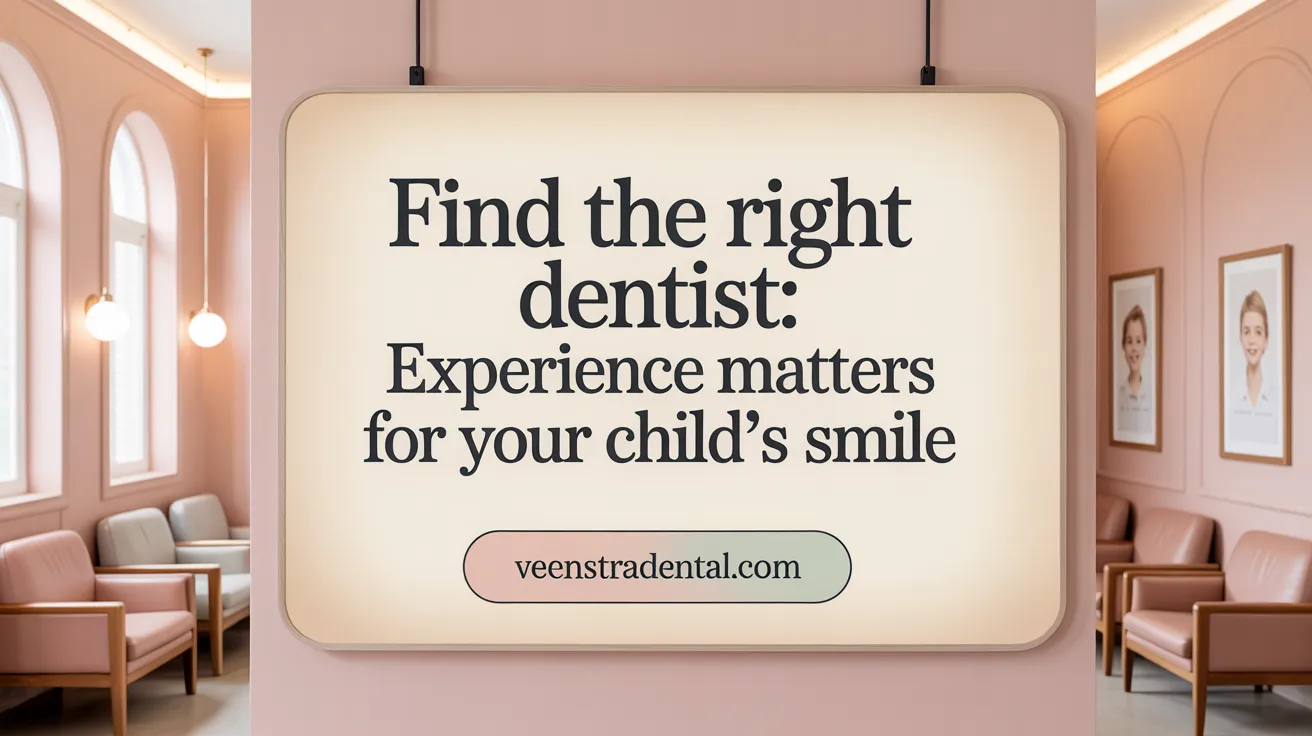Start Early: The Importance of the First Dental Visit
Scheduling your child's first dental visit by their first birthday or within six months of their first tooth eruption is a critical step in promoting lifelong oral health. Early dental appointments help detect potential problems, establish routines, and reduce anxiety related to dental care. This article provides parents with comprehensive guidance on preparing their child for their first dental appointment, what to expect during the visit, and how to ensure a positive dental experience that encourages good oral hygiene habits from the start.
When and Why to Schedule Your Child’s First Dental Visit
 The appropriate age for a child's first dental visit is by their first birthday or within six months after their first tooth erupts. This early appointment, usually around 12 months of age, helps establish a dental home, monitor oral development, and prevent childhood tooth decay. During the visit, the dentist conducts a gentle exam, offers guidance on oral hygiene, and may perform a brief cleaning. X-rays are generally not needed unless there are specific concerns.
The appropriate age for a child's first dental visit is by their first birthday or within six months after their first tooth erupts. This early appointment, usually around 12 months of age, helps establish a dental home, monitor oral development, and prevent childhood tooth decay. During the visit, the dentist conducts a gentle exam, offers guidance on oral hygiene, and may perform a brief cleaning. X-rays are generally not needed unless there are specific concerns.
Regular dental checkups are recommended every six months to maintain healthy teeth and gums. Early visits are crucial because they allow for the early detection of dental problems such as cavities, which remain the most common chronic disease in children. These appointments serve as an opportunity for dentists to educate parents on proper diet, brushing techniques, and injury prevention. Establishing good oral habits early can significantly reduce the risk of decay, infections, and other dental issues as children grow.
By scheduling and attending early dental visits, parents help set their children on the path toward lifelong oral health, reducing potential pain, costly treatments, and health complications related to poor dental care. Ignoring early dental care can lead to problems that worsen over time, emphasizing the importance of timely dental visits for young children.
Preparing Your Child for their First Appointment
 Parents play a vital role in helping their child feel comfortable and confident during their first dental visit. Effective preparation begins with explaining what will happen using simple, positive language. For example, telling children that the dentist is a friendly helper who will look at their teeth and make sure they stay healthy can set a reassuring tone (Preparing your child for their first dental visit).
Parents play a vital role in helping their child feel comfortable and confident during their first dental visit. Effective preparation begins with explaining what will happen using simple, positive language. For example, telling children that the dentist is a friendly helper who will look at their teeth and make sure they stay healthy can set a reassuring tone (Preparing your child for their first dental visit).
Reading children’s books or watching videos about visiting the dentist can familiarize children with the environment and reduce fears. These stories often depict friendly dental teams and fun experiences, helping children build positive associations (Tips to prepare kids for their first visit to the dentist).
Practicing at home is also very helpful. Parents can role-play with toys or stuffed animals, pretending to be the dentist or the patient. This activity encourages children to open their mouths and get used to dental instruments in a playful, non-threatening way. It’s a great way to simulate the visit and make children feel more familiar with what they can expect (Using toys to familiarize kids with dentistry).
Choosing the right time for the appointment is another important factor. Scheduling in the morning when children are usually more alert, and ensuring they are well-rested and not hungry, can make the visit smoother. Arriving early allows children extra time to acclimate to the office environment (First Dental Visit Timing).
Parents’ attitudes influence their children significantly. Staying calm, cheerful, and positive can pass reassurance to the child, making the experience seem safe and fun. Discussing any concerns with the dentist beforehand ensures that the dental team is prepared to handle any special needs or anxieties (Discussing concerns with the dentist).
Using distractions like toys, music, or rewarding the child's bravery afterward with praise or small treats can promote a positive outlook on dental care. Ultimately, consistent, gentle exposure and reassurance help children develop trust and reduce dental anxiety, encouraging lifelong oral health habits (Reducing fear and anxiety at the dentist).
What to Expect During the First Dental Visit

Typical duration and procedures
A child's first dental visit is an important milestone and usually lasts between 30 to 45 minutes. During this visit, the dentist will perform a comprehensive dental exam and cleaning of the child's teeth, gums, jaws, bite, and oral tissues. The appointment may also include a gentle cleaning, which involves polishing the teeth and removing plaque, tartar, and stains. Preventive treatments like fluoride application or sealants are often discussed or provided depending on the child's needs.
Oral exam and gentle cleaning
The primary focus of the initial visit is to assess oral health and identify any early concerns such as cavities or developmental issues. The dentist will carefully examine the mouth for signs of decay, injury, or abnormalities. Gentle cleaning helps remove plaque and helps children become accustomed to routine preventive dental care for children. This also establishes a foundation for maintaining healthy oral hygiene habits.
Guidance provided by the dentist
Parents receive valuable advice on proper home dental care tips for children, including brushing, flossing, and diet. The dentist may demonstrate proper brushing techniques and recommend the use of fluoride toothpaste for toddlers. Education on limiting sugary foods and drinks and managing teething or thumb-sucking habits is also provided to promote healthy development.
Use of X-rays and preventive measures
X-rays for children are generally avoided in young children unless absolutely necessary, as their use depends on individual risk factors and the child's age. When required, they help detect early decay or issues with permanent teeth. Other preventive measures, such as dental sealants or fluoride treatments, may be applied to protect teeth from decay.
Parental role during the visit
Parents are encouraged to stay calm and positive, as their attitude can influence the child's comfort level. Explaining procedures simply, reading books about dental visits beforehand, and bringing comfort toys can help ease anxiety. Participating in the process by asking questions and following the dentist’s guidance supports early positive experiences that foster lifelong oral health habits.
Overall, early dental visits for children help children develop familiarity and trust with dental professionals, laying the groundwork for healthy smiles in the future.
Communicating Dental Procedures and Encouraging Cooperation
 Helping children understand and cooperate during dental procedures involves multiple strategies rooted in early exposure, effective communication, and creating a positive environment.
Helping children understand and cooperate during dental procedures involves multiple strategies rooted in early exposure, effective communication, and creating a positive environment.
One of the most effective methods is starting to familiarize children with the dental environment by their first birthday or around age one. Early visits help reduce fear by making the dentist a friendly and routine part of health care (Right age for first dental visit, First dental visit timing).
Parents play a crucial role in explaining procedures in a simple, age-appropriate manner. Using visual aids such as pictures, models, and videos can illustrate what will happen, making the process less intimidating (Helping children understand dental procedures, Using books and videos for dental preparation).
The tell-show-do technique is particularly helpful. Initially, parents or dental staff describe the procedure in plain words, then show the child what will happen by demonstrating with toys or models. Finally, they gently perform the procedure, which helps build trust and reduces uncertainty (Creating a positive dental experience for your child, Preparing children for dental visits).
Role-playing activities at home are also beneficial; children can pretend to be the dentist or patient, practicing opening wide or holding their mouth open in a relaxed way. This playful preparation encourages cooperation during actual dental visits (Role-playing dentist visits, Using toys to familiarize kids with dentistry).
Distraction techniques are useful tools for keeping children at ease. Playing music, watching videos, or offering toys and blankets during the appointment can divert attention from the procedure (Tips for a positive first dental visit, Making dental visits fun for children).
Positive reinforcement, such as praise or small rewards (preferably non-food treats like stickers), encourages good behavior and helps children associate dental visits with positive experiences (Positive reinforcement for dental appointments, Rewarding children after dental visits).
Maintaining a calm, confident, and gentle demeanor as the parent or guardian reassures the child is essential. The dental staff should also foster a child-friendly environment, with welcoming decor and friendly staff, to further ease anxiety (Child-friendly dental office features, Creating a child-friendly dental environment).
Planning appointments at times when children are rested and fed helps ensure they are more receptive and cooperative (Scheduling appointments when children are well-rested, Morning appointment benefits). Open communication and ongoing reassurance make the dental visit a less stressful and more positive experience, laying the foundation for lifelong good oral health habits (Parental role in dental visits, Preparing children for their first dental visit).
Special Considerations and Ongoing Oral Health Care

What special considerations are there for dental visits in children with special needs, such as autism?
Children with special needs, including autism, require personalized dental care approaches that cater to their unique sensory, behavioral, and communication challenges. Preparing these children through visual schedules, social stories, and gradual exposure can significantly enhance cooperation during visits. Sensory-friendly environments, with options like noise-canceling headphones and visual aids, help make the experience less overwhelming. Behavioral support strategies, such as positive reinforcement and caregiver participation, foster trust. When necessary, utilizing sedation or anesthesia ensures effective treatment while respecting the child's comfort.
How do parents choose a suitable dentist for their child?
Selecting the right dentist involves looking for a pediatric specialist experienced in treating children at various developmental levels. An ideal dental office is welcoming, clean, and equipped for children, with staff known for their friendliness and patience. Parents should inquire about the dentist’s experience with behavioral management, preventive measures, and children with special needs if applicable. Checking credentials, reading reviews, and ensuring convenient hours and location are also important. Clear communication about treatment philosophy and emergency protocols helps build confidence, ensuring a positive experience.
What are some effective tips for at-home dental care following a child's first dental visit?
Post-visit, parents should establish a routine of brushing twice daily with fluoride toothpaste, supervising until their child is around 10 years old. Flossing should start once teeth touch. Reducing sugary snacks and drinks, especially before bedtime, along with promoting water intake, supports cavity prevention. Regular checkups and possibly preventive treatments like fluoride varnish or sealants reinforce oral health. Prompt attention to any dental issues, combined with healthy eating habits, forms the basis for lifelong dental wellness.
How can parents help their children develop good oral hygiene routines early on?
Starting oral care early by wiping gums before teeth emerge and introducing a small soft toothbrush with fluoride toothpaste as soon as teeth appear sets a strong foundation. Making routines fun—using songs or colorful brushes—encourages consistency. Leading by example, maintaining a healthy diet with limited sugary foods, and scheduling regular dental visits also promote good habits. Educational tools such as books and videos can motivate children and reinforce the importance of oral hygiene, helping them take responsibility for their dental health.
Why is educating children about oral health important?
Teaching children about oral health helps establish lasting habits that prevent cavities and other dental problems. Early education empowers children to care for their teeth, boosting confidence and social interaction skills. It also contributes to overall health, reducing risks of systemic diseases linked to poor dental hygiene. Educating children from a young age fosters responsibility, reduces anxiety about dental visits, and sets the stage for a future with healthier smiles—and fewer dental issues. For more insights, see Creating a Positive Dental Experience for Your Child.
Building a Foundation for Lifelong Oral Health
A child’s first dental visit lays the groundwork for healthy teeth and positive dental experiences throughout life. By beginning dental care early, preparing children with kindness and clear communication, and choosing the right dental professionals, parents can foster confidence and cooperation during dental appointments. Ongoing education and consistent at-home habits complement professional care to prevent dental problems and promote overall wellness. With thoughtful preparation and appropriate support, families can ensure that dental visits become a familiar and stress-free part of their child’s health journey.
